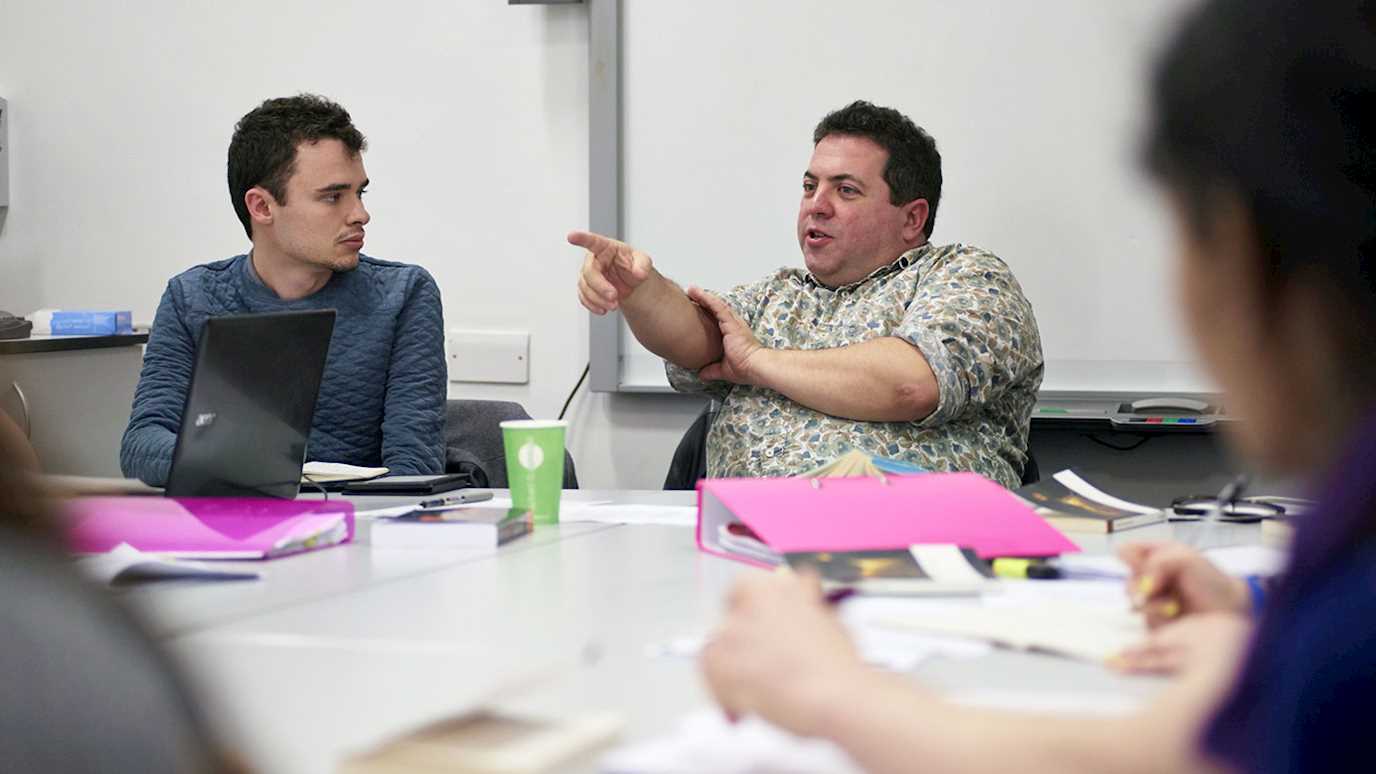Dr Sophie Gilmartin on Tess of the d'Urbervilles
Dr Gilmartin is an internationally-renowned expert on 19th C literature and culture. She teaches on a range of 19th C topics including Jane Austen and Thomas Hardy, in the English Department at Royal Holloway. Our MA in Victorian Literature, Art & Culture is a wonderful forum in which to expand your knowledge and appreciation of these authors and their works. The Victorian MA can be taken over one or two years.
Key points
- The reader is encouraged to ask why Tess suffers so much throughout the text. Is it a question of class, gender, biology, ancestral history orblind fate?
- There are legends of violence in the history of the D’Urberville family. To what degree is that ancient family violence played out in Tess’ life, against her and by her? Tess’ father learning of his D’Urberville ancestry is the catalyst for the novel; from the first page, the narrative isdriven forward by returns to ancestral and atavistic stories and behaviours.
- There is an almost folkloric structure to the novel. Tess’ mother is especially attracted to a rural ballad in which a girl is seduced and thenruined.
- Hardy subtitles this novel ‘A Pure Woman”, defending his heroine against the powerful stigma attached to women who became pregnantoutside wedlock. It could be Tess’ inability to escape narrow social judgments – and her own harsh judgment of herself -‐ that in partcontribute to her downfall.
- Angel Clare is unable to forgive Tess her previous indiscretion. While purporting to have wider and more open social views than many of hiscontemporaries, he still adheres to a double standard: while he has had a previous relationship, he cannot forgive Tess’ sexual knowledge.
Quotations
- 'Don't you really know, Durbeyfield, that you are the lineal representative of the ancient and knightly family of the D'Urbervilles, who derivetheir descent from Sir Pagan D'Urberville, that renowned knight who came from Normandy with William the Conquerer'
Tess of the D'Urbervilles, p. 1. - 'Why it was that upon this beautiful feminine tissue, sensitive as gossamer, and practically blank as snow as yet, there should have beentraced such a coarse pattern as it was doomed to receive; why so often the coarse appropriates the finer thus'
Tess of the D'Urbervilles, p. 71. - 'Doubtless some of Tess d'Urberville's mailed ancestors rollicking home from a fray had dealt the same measure even more ruthlesslytowards peasant girls of their time'
Tess of the D'Urbervilles, p. 71. - 'As Tess's own people down in those retreats are never tired of saying among each other in their fatalistic way: "It was to be."'
Tess of the D'Urbervilles, p. 71. - 'Mrs Brooks had strange qualms of misgiving. She got upon the table, and touched the spot in the ceiling with her fingers. It was damp, andshe fancied that it was a blood stain'
Tess of the D'Urbervilles, p. 387. - 'How can we live together while that man lives? -‐ he being your husband in nature, and not I. If he were dead it might be different ...'
Tess of the D'Urbervilles, p. 244.
Suggested passages
(Phase the Third, The Rally, Chapter XIX)
He observed her dejection one day, when he had casually mentioned something to her about pastoral life in ancient Greece. She was gatheringthe buds called "lords and ladies" from the bank while he spoke.
"Why do you look so woebegone all of a sudden?" he asked.
"Oh, 'tis only-‐-‐about my own self," she said, with a frail laugh of sadness, fitfully beginning to peel "a lady" meanwhile. "Just a sense of wha tmight have been with me! My life looks as if it had been wasted for want of chances! When I see what you know, what you have read, and seen,and thought, I feel what a nothing I am! I'm like the poor Queen of Sheba who lived in the Bible. There is no more spirit in me.""
Bless my soul, don't go troubling about that! Why," he said with some enthusiasm, "I should be only too glad, my dear Tess, to help you to anything in the way of history, or any line of reading you would like to take up-‐-‐"
"It is a lady again," interrupted she, holding out the bud she had peeled.
"What?"
"I meant that there are always more ladies than lords when you come to peel them."
"Never mind about the lords and ladies. Would you like to take up any course of study-‐-‐history, for example?"
"Sometimes I feel I don't want to know anything more about it than I know already."
"Why not?"
"Because what's the use of learning that I am one of a long row only-‐-‐finding out that there is set down in some old book somebody just like me,and to know that I shall only act her part; making me sad, that's all. The best is not to remember that your nature and your past doings havebeen just like thousands' and thousands', and that your coming life and doings 'll be like thousands's and thousands'."
"What, really, then, you don't want to learn anything?"
"I shouldn't mind learning why-‐-‐why the sun do shine on the just and the unjust alike," she answered, with a slight quaver in her voice. "But that's what books will not tell me."
"Tess, fie for such bitterness!" Of course he spoke with a conventional sense of duty only, for that sort of wondering had not been unknown tohimself in bygone days. And as he looked at the unpracticed mouth and lips, he thought that such a daughter of the soil could only have caughtup the sentiment by rote. She went on peeling the lords and ladies till Clare, regarding for a moment the wave-‐like curl of her lashes as theydropped with her bent gaze onher soft cheek, lingeringly went away. When he was gone she stood awhile, thoughtfully peeling the last bud; and then, awakening from her reverie, flung it and all the crowd of floral nobility impatiently on the ground, in an ebullition of displeasure with herself for her _niaiserie_, and with a quickening warmth in her heart of hearts."
(Phase the First, Chapter IX)
Darkness and silence ruled everywhere around. Above them rose the primeval yews and oaks of The Chase, in which there poised gentleroosting birds in their last nap; and about them stole the hopping rabbits and hares. But, might some say, where was Tess's guardian angel? where was the providence of her simple faith? Perhaps, like that other god of whom the ironical Tishbite spoke, he was talking, or he was pursuing, or he was in a journey, or he was sleeping and not to be awaked.
Why it was that upon this beautiful feminine tissue, sensitive as gossamer, and practically blank as snow as yet, there should have been tracedsuch a coarse pattern as it was doomed to receive; why so often the coarse appropriates the finer thus, the wrong man the woman, the wrongwoman the man, many thousand years of analytical philosophy have failed to explain to our sense of order. One may, indeed, admit the possibility of a retribution lurking in the present catastrophe. Doubtless some of Tess d'Urberville's mailed ancestors rollicking home from a fray had dealt the same measure even more ruthlessly towards peasant girls of their time. But though to visit the sins of the fathers upon the children may be a morality good enough for divinities, it is scorned by average human nature; and it therefore does notmend the matter.
As Tess's own people down in those retreats are never tired of saying among each other in their fatalistic way: "It was to be." There lay the pityof it. An immeasurable social chasm was to divide our heroine's personality thereafter from that previous self of hers who stepped from her mother's door to try her fortune at Trantridge poultry-‐farm.
Further reading
- Boumelha, Penny, ‘Tess of the d’Urbervilles (1891)’ in ‘Thomas Hardy and Women: Sexual Ideology and Narrative Form’, Brighton: TheHarvester Press, 1982.
Still one of the most important feminist readings of Tess, in which Boumelha analyses how Hardy both ‘speaks’ Tess and ‘speaks for’ her.Boumelha describes the uneasiness in Hardy’s attempts to represent both a woman’s physicality and her interiority: ‘Tess’s sexuality eludes thecircumscribing narrative voice’ Boumelha claims. - Irwin, Michael. Reading Hardy’s Landscapes. Basingstoke, UK: Macmillan, 2000.
Offers a stimulating reading that stresses the importance of movement and dynamic within the visual as it is portrayed in Hardy’s works. Coversboth novels and poetry, but with a strong emphasis on the former. - Jacobus, Mary. ‘Tess’s Purity’. Essays in Criticism 26 (1976): 318–338.
The strongest of a group of three influential essays by this author that set the tone for future work examining Hardy’s own attitude to womenand concentrating on issues of “reconstructive” language together with information on textual alterations. - Kramer, Dale, ed. The Cambridge Companion to Thomas Hardy. Cambridge: Cambridge University Press, 1999.
The most comprehensive of the many edited collections on Hardy, with general introductions to most areas of Hardy criticism by leadingscholars. Linda Shires on narrative instability in Tess is a superlative analysis. Much less coverage of the poetry than might be expected, however. - Miller, J. Hillis, ‘Tess of the D’Urbervilles: Repetition as Immanent Design”, Chapter 5 of Fiction and Repetition: Seven English Novels,Harvard: Harvard University Press, 1982.
A seminal essay by a leading literary theorist, this essay explores the role of repetition in Hardy’s novel. Repetitions of and in colour, folkloricthemes, ancestry, history, and landscape weave an inescapable web in Tess’s life, but finally the significance of this repetition leads to an‘undecidability’ in the novel. - Williams, Raymond. ‘Thomas Hardy’. In The English Novel from Dickens to Lawrence. By Raymond Williams, 95–118. London: Chatto& Windus, 1970.
One of many influential articles written by Williams on Hardy, which covers the salient points of his view quickly and clearly; a rejection of the“autodidact” label, a defense of Hardy’s regionalism, and the perceived centering of the fiction in ordinary life and work.
Web links
- The Victorian Web provides useful resources including contexts, a chronology and articles on Tess and Hardy’s other works
- The Victorian Web has a whole page of resources devoted to Tess of the d’Urbervilles
- The Thomas Hardy Association is a useful gateway to other resources
- The OUP Writers Inspire project collects some materials on Hardy
- The British Library's Discovering literature page on Tess of the d'Urbervilles
























